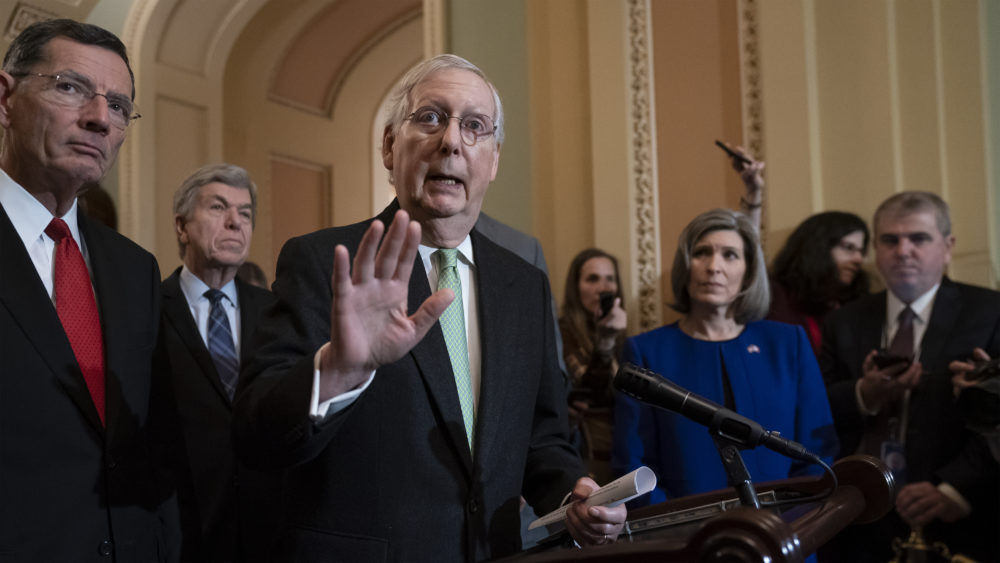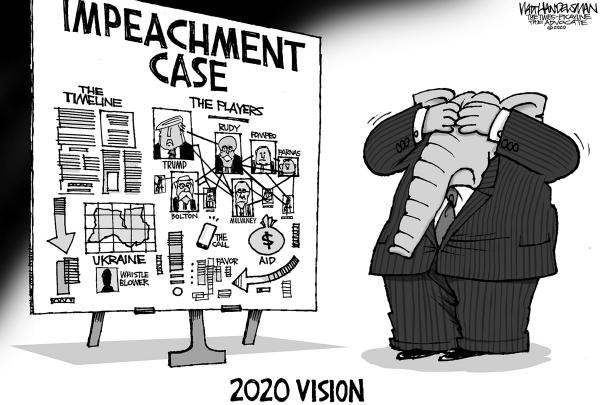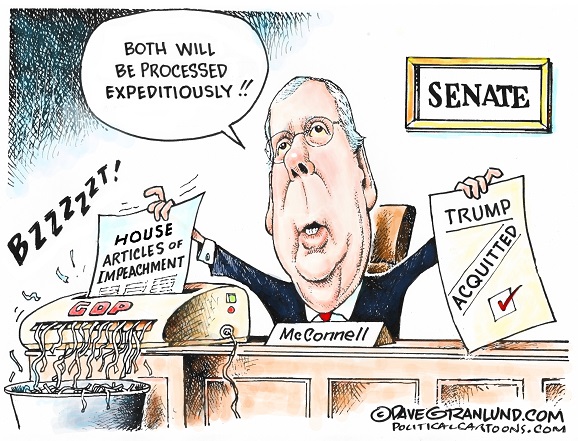I watched the Iowa Caucus on MSNBC for a couple of hours last night, then went to bed before the speeches. I have to say that I was dismayed and depressed by what I saw even before it was revealed that the results were gummed up in technological glitches.
One caucus-goer after another was interviewed, and one after another proclaimed they were basing their vote on “electability.” In other words, their decisions often were based on the near-endless propaganda that we must choose a nominee that conservative white people will vote for. Never mind the rather poor track record of past “electable” Democratic nominees (example).
One more time, people — we don’t know who is “electable” until there is an election. The pundits don’t know. Senior Democratic Party officials don’t know. Nobody knows. All they have are theories, and the theories have been proved wrong in the past. From now on, let’s do something crazy and vote for the person we think would make the best POTUS. The result would, at least, be a reflection of what we actually want and not what we’re told we have to settle for. Whoever gets the most votes really ought to be electable.
Even so, it appears Biden really flopped in Iowa, so perhaps he’s less “electable” than he used to be.
Also, although I’d read about how the caucuses are run, I’d never before seen how screwy they are. For example, this is from one high school gym last night:

I am told the math is accurate; I have no way to know. Arithmetic to me is akin to witchcraft and the work of the devil. But this is self-evidently screwy. The rounding is distorted because of the small number of delegates (someone suggested cutting the delegates into smaller pieces to make the total more representative of the vote). Multiply that distortion by the number of caucus venues, and you get a very distorted statewide result. They should allocate delegates by statewide totals, IMO. But nobody listens to me.
I was also watching people who came to caucus for “non-viable” candidates who switched sides based on which “viable” group was having the most fun or where their friends were going. Again, this is a distortion that doesn’t reflect, as a rule, what happens in a voting booth.
It would be a lovely experiment to hold both a primary and a caucus in Iowa to see if both procedures gave us the same result. I bet they would not.
Caucuses are notoriously non-representative because they are intimidating and confusing and require people to spend at least a couple of hours, probably more, hanging out in the venue. People with disabilities complain they can’t manage them. People who need babysitters or who have night jobs can’t go. People who are likely to vote in the general but who don’t have really strong feelings about any one candidate may not bother. Turnout at caucuses generally is much, much lower than turnout in primaries. I understand that caucus participation usually reflects fewer than 10 percent of voters.
There is weeping and wailing today because there was not a record turnout last night. There were many predictions of a new record, but I understand turnout was about the same as in 2016 (that’s what they’re saying so far). The all-time record turnout was 2008, when people pumped up about Barack Obama, Hillary Clinton, and John Edwards (yeah, remember him?) caucused in relatively vast numbers. Whether this year’s turnout means anything, I do not know. It might just mean that many potential caucus-goers didn’t have any one favorite candidate and decided not to bother.
Now, on to the technical glitches. Here is a detailed explanation at Vox. In brief, in addition to proposing to report more data than in the past, the Iowa Dem party decided that all this data would be reported through a new, untested, app. Those who didn’t want to use the app were supposed to report numbers by phone.
According to the New York Times, many precinct chairs didn’t use the app at all, citing difficulty downloading or using it. These volunteers said they had always preferred to call in the results as they had in the past, and that’s what many of them tried to do when the app wasn’t working. Many reported that phone lines at party headquarters were busy for hours, as potentially hundreds of volunteers from more than 1,600 precincts tried calling in their results.
It’s unclear so far why the phone center had so much trouble responding to the calls. Some precinct chairs even tried taking photos of their results and hand-delivering them to Iowa Democratic Party headquarters in Des Moines, and even then they weren’t able to get through to party officials.
Somewhere last night I saw a comment that caucuses should not be run by the state parties but by the state election commission. I don’t know if that would necessarily be any better, though. From the New York Times:
For the third consecutive presidential cycle, the results here are riddled with questions, if not doubt. First it was the Republicans, when Mitt Romney was initially declared the winner in 2012 before that was later reversed, and then the Democrats suffered when a virtual tie between Hillary Clinton and Mr. Sanders in 2016 set off a number of rule changes that culminated in the 2020 debacle.
There is a paper record, I understand, so they ought to be able to sort the votes eventually. But I’m leaning in the direction of Paul Waldman, who writes that it’s time to kill the Iowa Caucus. And the rest of the caucuses also.
If you tuned in to cable news and watched correspondents running around middle school gyms explaining that one candidate’s supporters didn’t reach the threshold of viability and so had to find another candidate, you probably asked, “What’s the point of that?”
It’s a good question. Why on earth should a candidate who gets 14 percent of the vote in a given precinct get zero votes when the results are tabulated? How is that supposed to be democratic?
Good question.
We’ll find out who won Iowa eventually, but the impact of that victory will be significantly attenuated, which is a good thing. It’ll still be big news, but it won’t be transformative in the way it often is.
To be clear, if you care at all about the fairness of this process, you should be glad about that however your favorite candidate is affected, whether it’s Sen. Bernie Sanders (I-Vt.) (probably) being denied headlines celebrating his victory or Joe Biden (probably) avoiding headlines skewering his poor showing. If your candidate has what it takes, they’ll win without Iowa distorting our view of what the whole Democratic electorate wants.
And if we’re really lucky, this might be the occasion for some significant reform. The absolute minimum that should be done is for Iowa to switch from a caucus to a primary, in which — and see if you can follow along here — voters cast ballots, either at a polling place or mailing them in from home, and then the person with the most votes wins. Imagine that!
Not all presidential primaries are winner-take-all but split the delegates proportionately to the candidates according to statewide vote. And if it’s a tie, it’s a tie. You might remember that in 2016 Sanders and Clinton tied in Iowa at 49 percent but Clinton was declared the winner. Some coin tosses were involved. It should have just been declared a tie and the delegates evenly distributed.
See also Waldman’s column from yesterday, The Presidential Caucus Needs to Die.
Now, on to the rumors. You may have heard that Robby Mook, the techno bro who worked for Hillary Clinton in 2016, was somehow connected to the malfunctioning app. This is not true, according to Mook.
Sorry, folks. I did NOT have anythjng to do with building the Iowa caucus app. I dont know anything about it, had no role in it, and dont own a company that makes mobile appa. Please contact @iowademocrats with questions about it.
— Robby Mook (@RobbyMook) February 4, 2020
However, see This Is The Buzzy Democratic Firm That Botched The Iowa Caucuses at Huffpost. The tech company that developed the app, Acronym, is connected to a lot of people from the Clinton-Obama wing of the party. Another tech company with party insider connections called Shadow is getting a lot of attention from conspiracy theorists today, but Shadow says it didn’t have anything to do with the bleeping app.
I personally think these people just bleeped up. This screwup is bad for the entire Democratic Party, not just one candidate. Don’t create conspiracy theories for things that can be attributed to incompetence, I say.
There also were stories in right-wing media that Pete Buttigieg was somehow connected to the app developer. It turns out that the Buttigieg campaign uses Shadow for text messaging, as does the Biden campaign, and the terminated Kirsten Gillibrand campaign used Shadow for several things. Again, this seems unremarkable to me.
The bigger question is, how much damage might this do to the nominating process? In a logical world, it wouldn’t. But Nate Silver thinks it could be huge.
In trying to build a forecast model of the Democratic primaries, we literally had to think about the entire process from start (Iowa) to finish (the Virgin Islands on June 6). Actually, we had to do more than that. Since the nomination process is sequential — states vote one at a time rather than all at once — we had to determine, empirically, how much the results of one state can affect the rest.
The answer in the case of Iowa is that it matters a lot. Despite its demographic non-representativeness, and the quirks of the caucuses process, the amount of media coverage the state gets makes it far more valuable a prize than you’d assume from the fact that it only accounts for 41 of the Democrats’ 3,979 pledged delegates.
More specifically, we estimate — based on testing how much the results in various states have historically changed the candidates’ position in national polls — that Iowa was the second most-important date on the calendar this year, trailing only Super Tuesday. It was worth the equivalent of almost 800 delegates, about 20 times its actual number.
Many, like Paul Waldman, have been arguing for years that Iowa shouldn’t be allowed to have that kind of influence. It is not representative of the U.S. as a whole and especially not representative of Democratic voters.
And while we’re often told that Iowans take their “first in the nation” responsibilities seriously and are well informed, videos have emerged today in which caucus participants freak out when they find out Buttigieg is gay. Wait until they find out Bloomberg and Sanders are Jewish. (/snark)
In short, I sincerely hope this was the last Iowa Caucus. In fact, there shouldn’t be any one state that goes first, whether primary or caucus. I suggest scrapping the hodge-podge calendar we have now for regional primaries, five to ten continguous states at a time allowing for a more diverse demographic mix. And I sincerely hope the rest of the primary elections go smoothly.
More:
Nathan Robinson, Joe Biden flopped in Iowa. And so did the Democratic party’s reputation
Greg Sargent, Lindsey Graham’s Iowa deception shows Trump’s corruption of GOP
Andrew Ferguson, Iowa Forgot the Whole Point of the Caucus
Andy Kroll, Dempocalypse Now







